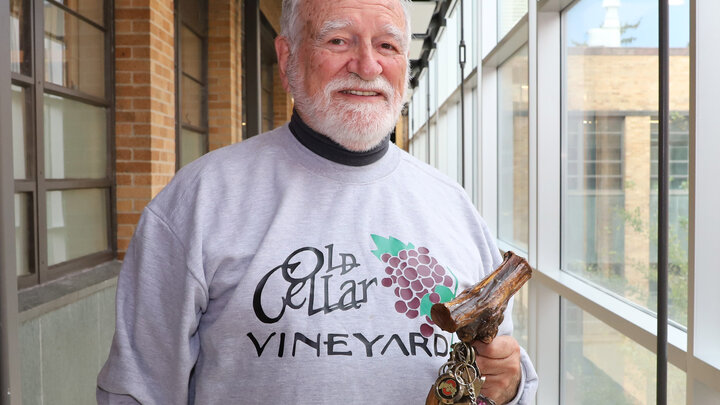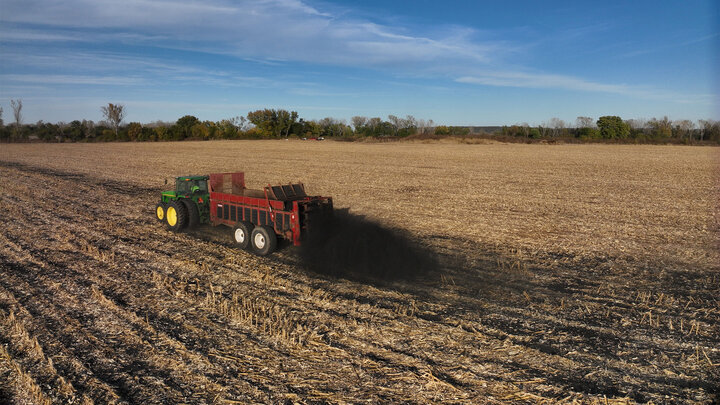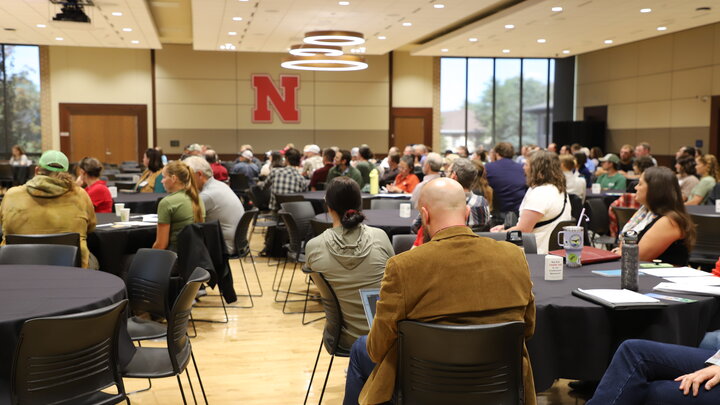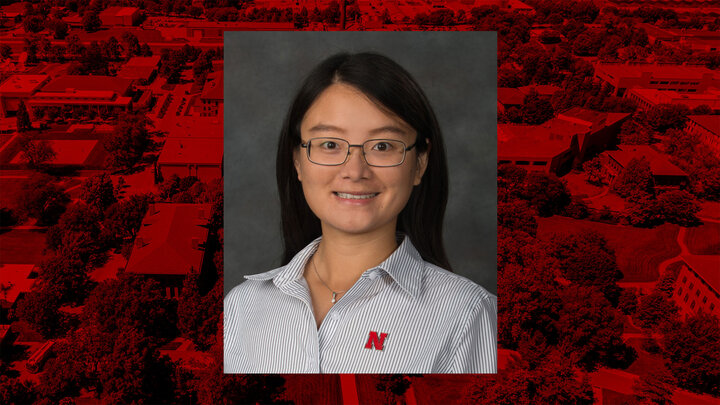Paul Read, professor of agronomy and horticulture and viticulturist, was installed as chair of the American Society for Enology and Viticulture–Eastern Section at the society’s 44th Annual Conference held at Hobart and William Smith Colleges in Geneva, New York. He was presented with the traveling ASEV-ES chair’s gavel, which is uniquely fashioned from a piece of grapevine trunk and root, and adorned with mementos from past chairs.
In addition to chair duties, Read served as program chair for the conference and a host for the hospitality suite.
Read and his graduate students have been frequent contributors to ASEV–ES annual conferences and the American Society for Enology and Viticulture.
Formed in 1950, ASEV is dedicated to the interests of enologists, viticulturists and others in the fields of wine and grape research and production throughout the world. ASEV–ES provides forums for the presentation, discussion and publication of research and technology developments for the advancement of wines and the solution of problems of specific interest to the enology and viticulture of grapes grown in the Eastern United States and Canada east of the Continental Divide.
An important focus for the ASEV–ES is the continuous improvement, professional growth and encouragement of students. ASEV-ES also provides scholarships for students of enology and viticulture.
Read also attended the American Society for Horticultural Science Annual Conference in Las Vegas, Nevada and was elected chair of the Fellows Selection Committee and chair of the Hall of Fame Committee. He presented two posters on Nebraska grape research.
The American Society for Horticultural Science was established in 1903 and is recognized around the world as one of the most respected and influential professional societies for horticultural scientists. ASHS is committed to promoting and encouraging national and international interest in scientific research and education in all branches of horticulture.



